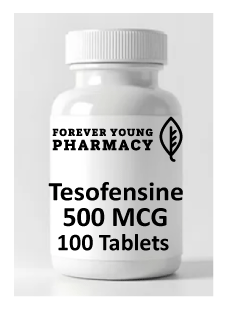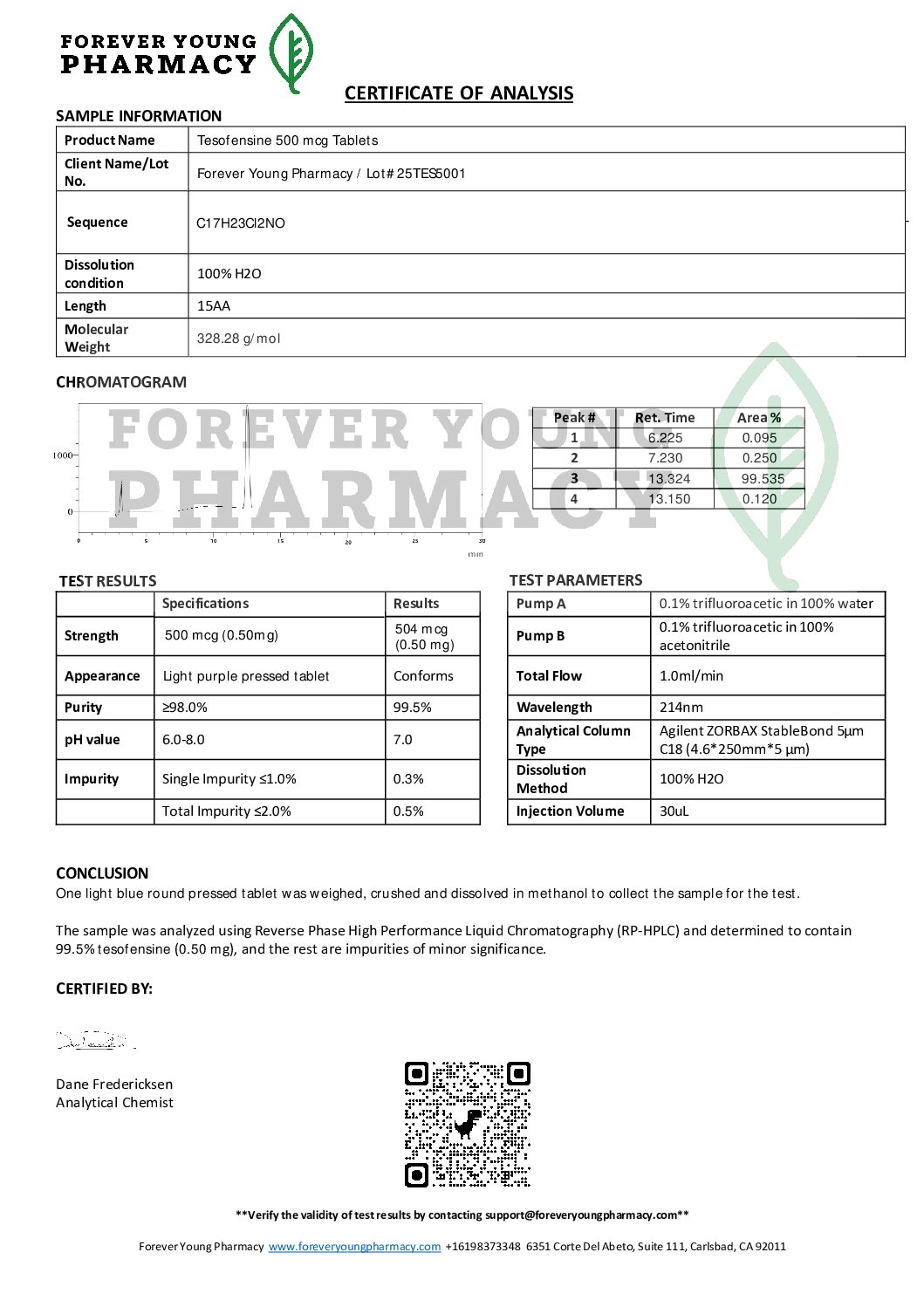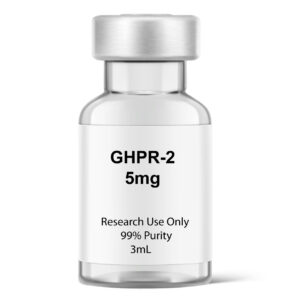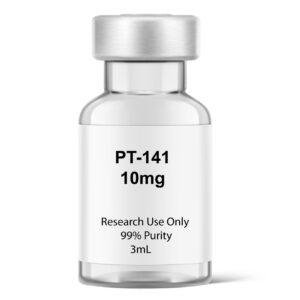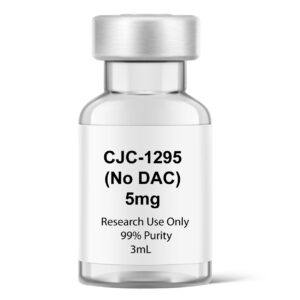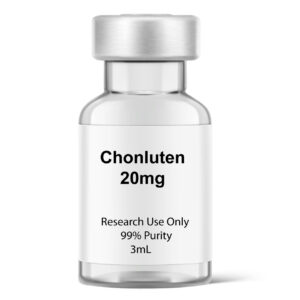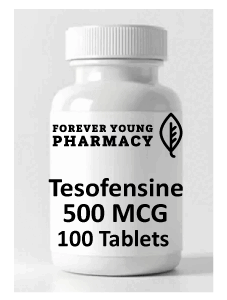Introduction to Tesofensine
Tesofensine is a triple monoamine reuptake inhibitor (TMRI) under investigation in non-clinical research for its effects on central nervous system signaling. Originally explored in neurochemical studies related to dopaminergic and serotonergic pathways, Tesofensine is now being evaluated in laboratory settings for its influence on neurotransmitter modulation, energy regulation, and appetite-related signaling in preclinical models.
This compound is provided as a 500 mcg tablet for research use only and is not approved for human or veterinary use.
Mechanism of Action
Tesofensine inhibits the reuptake of dopamine (DAT), norepinephrine (NET), and serotonin (SERT) by targeting their corresponding transporters. In controlled research models, this activity is studied for its influence on:
Monoamine neurochemistry in the central nervous system
Energy expenditure and metabolic regulation in test systems
Feeding behavior and satiety signaling
Neuromodulatory roles in motivation and reward response
Tesofensine’s balanced reuptake inhibition makes it a unique compound for studying interconnected neurotransmitter systems.
All studies using Tesofensine must be performed in a laboratory environment and must not involve administration to humans or animals.
Key Research Areas
In vitro and in vivo studies have investigated Tesofensine’s role in:
Monoaminergic pathway modulation
Energy homeostasis models
Cognitive and neurodegenerative research frameworks
Neurotransmitter-driven behavioral response assays
Its unique pharmacodynamic profile makes it a candidate of interest for metabolic signaling, neuroplasticity, and experimental appetite modulation.
Certificate of Analysis
Tesofensine 500mcg – COA – FYP
| Property | Description |
|---|---|
| Chemical Name | Tesofensine ((1R,2R,3S,5S)-3-(3,4-dichlorophenyl)-2-(ethoxymethyl)-8-methyl-8-azabicyclo[3.2.1]octane) |
| CAS | 402856-42-2 |
| Molecular Formula | C17H23Cl2NO |
| Molecular Weight | 328.28 g/mol |
| CID | 11370864 |
| Appearance | White Pressed Tablet |
| Purity | ≥98% (verified by HPLC, per USP <621>) |
| Storage | Store at 15–25°C in a dry, sealed container; stable for 24 months |
Learn More About Tesofensine
- “Tesofensine induces dose-dependent body weight loss of up to 10.6% in obese patients” (Astrup et al., Lancet, 2008).
- “Tesofensine: A novel anti-obesity drug with cardiovascular considerations” (Drugs, 2010).
- “Significant weight loss and metabolic benefits observed in Phase II trials” (Obesity Reviews, 2011).
- “Tesofensine’s triple monoamine reuptake inhibition offers a unique approach to appetite control” (Pharmacology & Therapeutics, 2012).
- “Efficacy and safety of tesofensine in obese patients with prediabetes” (Diabetes, Obesity and Metabolism, 2013).
Tesofensine is supplied strictly for laboratory-based research applications. It is not intended for human or animal use, including consumption, diagnosis, treatment, or therapeutic intervention. It must not be marketed, misbranded, or presented as a pharmaceutical, supplement, or food. Users are responsible for ensuring compliance with applicable laws and safety protocols.

